Cannot comment on the performance of the Linq version but here are Linq and non-linq solutions
hth,
Alan
Edit
The sample data does show any duplicates of listId/ItemId so I omitted the distinct check but if needed it goes as the first part of the linq statement.
Edit 2
Have updated the Linq code.
Haven't updated the non-linq code. Just check to see if same a previous before adding (assumes sorted, ListId, ItemId as per sample input.
[TestMethod]
public void LinqVersion() {
Dictionary<int, List<ListItem>> found = new Dictionary<int, List<ListItem>>();
var comparer = new ListItemEqualityComparer();
var actual = Input.Distinct(comparer).GroupBy(lstItem => lstItem.ListId).Where(grp => grp.Count() == 4).SelectMany(grp => grp);
Assert.IsTrue(Expected.SequenceEqual(actual, comparer));
}
[TestMethod]
public void NoLinqVersion() {
Dictionary<int, List<ListItem>> found = new Dictionary<int, List<ListItem>>();
foreach (var listItem in Input) {
AddItem(found, listItem.ListId, listItem);
}
var actual = new List<ListItem>();
foreach (var pair in found) {
if (pair.Value.Count == 4) {
actual.AddRange(pair.Value);
}
}
Assert.IsTrue(Expected.SequenceEqual(actual, new ListItemEqualityComparer()));
}
private static void AddItem(IDictionary<int, List<ListItem>> dictionary, int listId, ListItem listItem) {
if (!dictionary.ContainsKey(listId)) {
dictionary.Add(listId, new List<ListItem>());
}
dictionary[listId].Add(listItem);
}
public class ListItem {
public int ListId { get; set; }
public int ItemId { get; set; }
}
public class ListItemEqualityComparer : IEqualityComparer<ListItem> {
public bool Equals(ListItem x, ListItem y) {
return x.ListId == y.ListId && x.ItemId == y.ItemId;
}
public int GetHashCode(ListItem obj) {
return obj.ListId ^ obj.ItemId;
}
}
public List<ListItem> Input = new List<ListItem>(){
new ListItem{ ListId = 1 , ItemId = 1},
new ListItem{ ListId = 2 , ItemId = 1},
new ListItem{ ListId = 2 , ItemId = 2},
new ListItem{ ListId = 2 , ItemId = 3},
new ListItem{ ListId = 2 , ItemId = 4},
new ListItem{ ListId = 3 , ItemId = 1},
new ListItem{ ListId = 3 , ItemId = 2},
new ListItem{ ListId = 4 , ItemId = 1},
new ListItem{ ListId = 4 , ItemId = 2},
new ListItem{ ListId = 4 , ItemId = 3},
new ListItem{ ListId = 4 , ItemId = 4},
new ListItem{ ListId = 5 , ItemId = 1},
new ListItem{ ListId = 5 , ItemId = 2},
};
public List<ListItem> Expected = new List<ListItem>{
new ListItem{ ListId = 2 , ItemId = 1},
new ListItem{ ListId = 2 , ItemId = 2},
new ListItem{ ListId = 2 , ItemId = 3},
new ListItem{ ListId = 2 , ItemId = 4},
new ListItem{ ListId = 4 , ItemId = 1},
new ListItem{ ListId = 4 , ItemId = 2},
new ListItem{ ListId = 4 , ItemId = 3},
new ListItem{ ListId = 4 , ItemId = 4}
};
